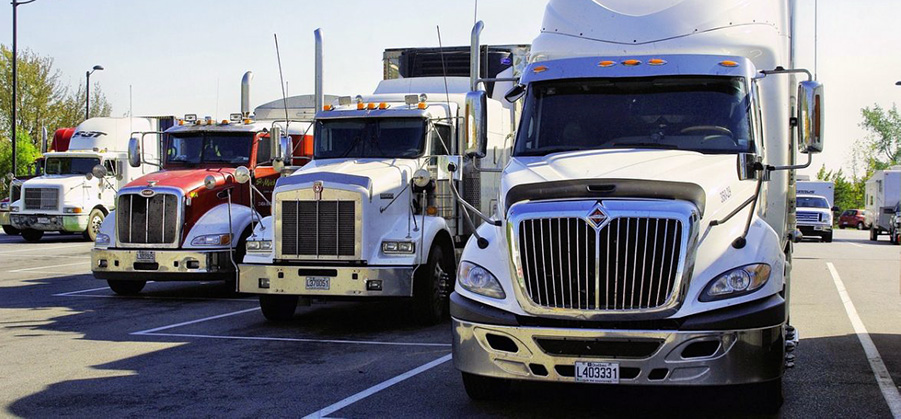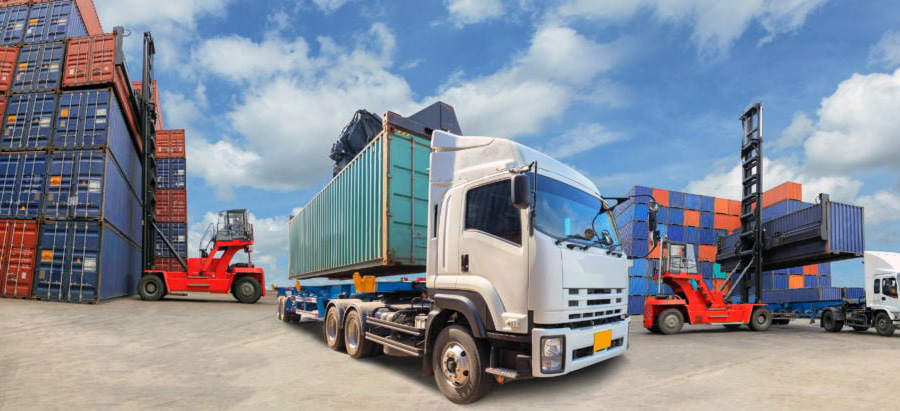Freight Broker 101
A freight broker, in transportation and shipping, is frequently made use of as part of logistics. This relation may be part of an overall shipbroking using a freight broker, a freight forwarder, a third-party logistics broker (3PL), and also even a fourth-party broker when outsourcing is needed (in contrast to internal) for freight transportation. The freight brokering can be single mode or by multimodal transportation & can also utilize specialized brokers on a long-term basis or as required to guarantee timely traffic administration.
A load may be posted on a truckload board by carriers, brokers, or agents. This post might accompany unique orders, freight brokers and representatives that do not have an established logistics base, or brokers and also representatives seeking a backhaul for a truck not currently in a high-traffic lane. Numerous brokers focus on particular freight such as complete truckload (FTL) or less than truckload, vehicle, boat or private yacht, mass tanker (fluid or dry goods), oversize, equipment hauling on lowboys, flatbed, step deck, or any other kind of freight transportation with sufficient loads.
Co-brokering Freight
Co-brokering is a legal method utilized to guarantee there is an available truck to transfer freight. A 4PL may make use of a 3PL broker to match loads with trucks, with a shipper’s understanding. The first freight broker will take a smaller amount of the charge, and the second broker will book the load for transport, getting a more significant share of the very same fee.
Co-Brokering Versus Double Brokering
For many years, the transportation market has confounded “double brokering” and “co-brokering” to imply the same. As a result, both have gotten an unfavorable response. It is essential to recognize the difference between double agenting as well as co-brokering because one can be an asset to your brokerage organization. At the same time, the other is a definite risk.
Individuals typically ask whether it is legal for a licensed transportation residential or commercial property broker to accept a load from its client and also consider offering that load to an additional broker for assistance organizing transportation. The solution is yes, and it’s called co-brokering.
Not only is co-brokering lawful, but also sometimes helpful to have one more broker help cover a load, as long as the agreement that the original broker has with its client doesn’t specifically forbid co-brokering. When done correctly, there’s nothing terrible about co-brokering, knowing the transaction is taken care of according to the authorization of the initial broker.
The Disadvantages of Double Brokering
There genuinely are no advantages to double brokering – only risks. By the inherent nature of the purchase, double brokering is not like co-brokering.
When a carrier consents to carry freight for a broker (under the guise it will carry the freight), and the carrier ultimately re-brokers it to one more carrier, the freight has now been double agented.
The same is true when a carrier (that additionally has broker authority) accepts a brokered load (as the carrier) and after that tenders that load with an additional carrier through its brokerage (without the broker’s knowledge or permission).
In either event, the original broker is currently in an endangering scenario:
- It does not know who is handling the freight.
- It does not know whether the actual carrier has the required authorizations.
- It does not know if the carrier’s insurance coverage suffices to secure the parties.
- It does not know what due diligence was in place to certify the carrier.
- Mapping the freight becomes suspicious at best, generally leaving the initial broker with incorrect info to transfer to its consumer.
The original broker likewise risks being captured in a possible double risk situation. For instance, if it pays the acquired carrier (that double agented the load), and that carrier does not pay the actual carrier, the original broker (or its consumer) might be held accountable to pay a second time for the same freight shipment.
Undoubtedly, this type of low-grade task has aided in providing the transportation brokerage community an unwarranted suspicious reputation.
Advantages of Co-Brokering
Co-brokering is when a freight broker works with one more broker to service a particular demand, with all parties aware of each other’s functions and responsibilities. The question is not whether to manage another broker, however, instead to use another broker’s resources to your benefit when your funds aren’t sufficient.
One of the most potent advantages of co-brokering is servicing your customers. It verifies your brokerage has the available resources to service all their requests.
Beyond that, co-brokering can lead to a profit on a purchase that your brokerage could have or else refused. After all, you’re in business to do service, not reject service. If you do not provide service to your customers, someone else will.
Some freight brokers have established specific niches that brokers can utilize to their advantage in better servicing their clients. Some of the particular niches include border crossings, bound freight, working with unsafe materials, extra-large equipment, and also local contracts.
A freight broker’s services are not limited by properties, but instead by its creativity to adapt and also get used to scenarios. Consequently, its capacities can increase by leveraging the abilities of other brokers. When brokers work together, it is since one can finish whatever the various other currently lacks. The bottom line is that co-brokering provides brokers the capability to adjust as well as to adapt to unfamiliar situations.
By interacting in a co-broker connection, both brokers benefit, along with the preliminary client. All events entailed need to have the contentment of a job well done by assisting a client and also keeping a consistent profit. The other choice would be to leave the money on the table for the competitors to take.
An alliance with another broker is just an additional chance to supply solutions that your brokerage did not have before the partnership. Once a broker acknowledges the benefits of co-brokering (and also decides to manage other brokers), the freight broker can include the services of its co-brokering allies within its very own portfolio, consequently broadening its range of services offered. When it pertains to obligation and the bottom line, would you rather handle a broker you understand or a carrier you do not?
Before conducting business with another freight broker, you should execute ample due diligence to research and get to know the firm you are considering. This inspection is a vital step that needs not to be overlooked. There are agreements created specifically for co-brokering, detailing what each participant in the deal can anticipate of the various other.
Freight Broker Concerns
Double-brokering or re-brokering is illegal and happens when a freight broker bills a fee (often 15%) and then hands off the load to a 2nd broker that will decrease the freight charge additionally collecting a fee that can be approximately 15%. A $1,150 load going 400 miles would net a carrier $977.50. However, the same load double brokered might lead to $875.00 to the carrier or one more 14.3% brokerage charge. The carrier may not be aware of this, and also the contracted truck will likely not be dispatch to pick up the load. This scenario could have serious implications in case of a mishap or event, specifically if there are operating issues with the carrier. Confusion on the payment could cause a possessory lien (rather than “freight charges held hostage.”), a load not delivered, and also legal actions.

What’s the difference between a freight broker and a freight representative?
The most significant distinction is that a freight agent is typically an individual that serves as an independent professional salesman for a freight broker. Freight agents have their very own customers as well as usually work on commission. A section of the freight representative’s gross earnings goes to the freight broker in exchange for management assistance, circulation, insurance coverage, liability buffers as well as the track record that comes along with the broker’s name.
Freight brokers need a certificate from FMCSA as well as a guaranty bond. They are in charge of the economic aspects of the business (i.e., invoicing carriers, paying carriers, expanding debt, case help, paying representatives, etc.). Freight brokers can range from a one-person procedure to a large international company with billions in profits. Freight brokers are in charge of only working with truck carriers that satisfy the FMCSA guidelines, including authority, insurance coverage, and also safety requirements, and that payments as a result of carriers are not withheld. Eventually, freight brokers assume the danger of providing credit ratings to consumers, so they must examine and also keep an eye on a consumer’s credit history.
A freight agent is responsible for sales and joining carriers with customer demands. Many representatives work from their own houses, under the instructions and authority of an accredited freight broker. Therefore they have minimal to no liability yet have the ability to earn a significant amount based upon the profit their clients create. Representatives communicate with both shipping clients as well as electric motor carriers in an initiative to guarantee their customers’ freight ships on time, in excellent condition with no troubles. The majority of a freight representative’s day revolves around soliciting new customers, supplying freight rates, sourcing carriers, negotiating with shippers/carriers, sending off trucks, organizing pick-up/deliveries, and also resolving issues that might delay or damage a shipment.

